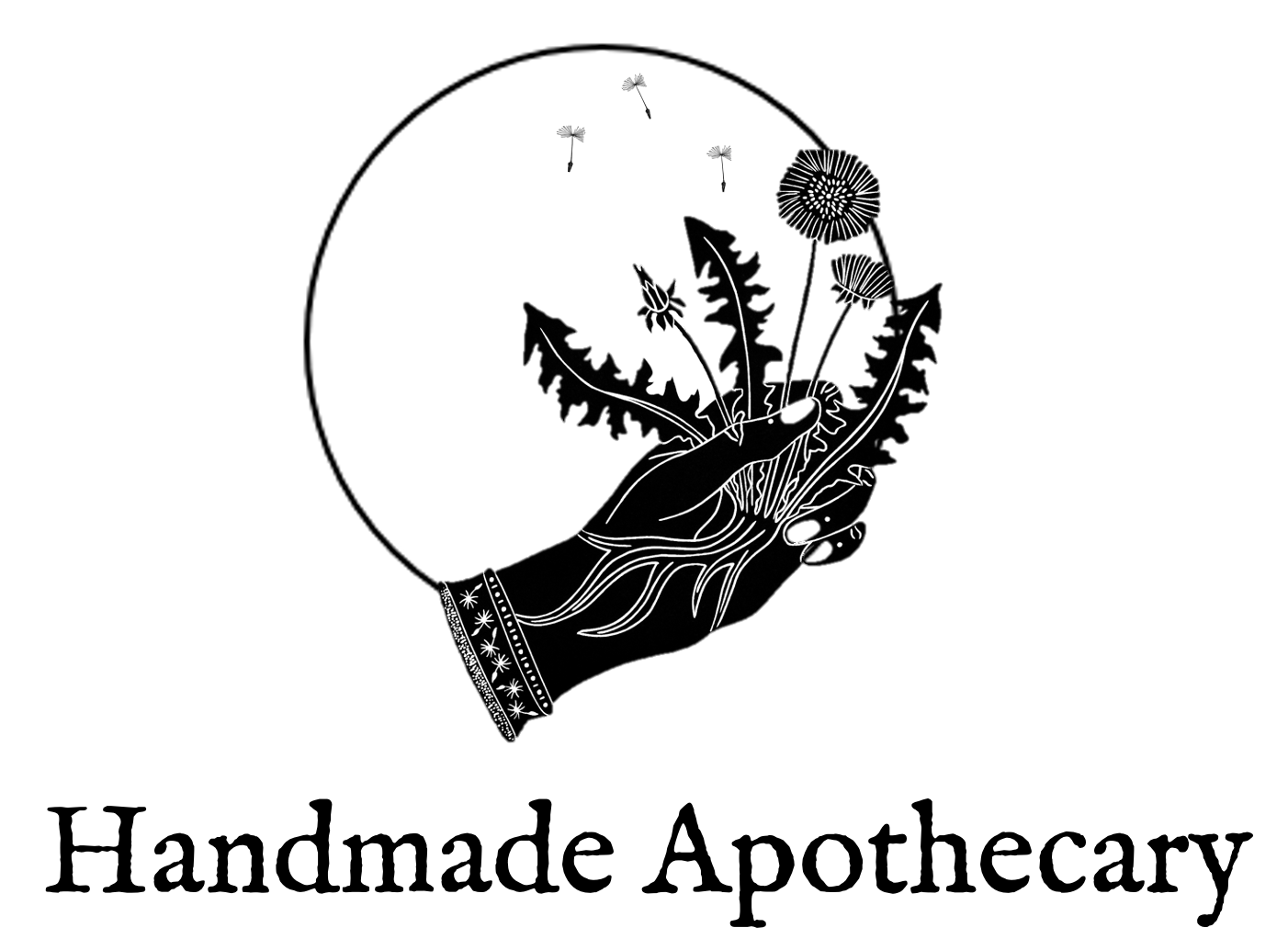'A spoonful of sugar helps the medicine go down' as Mary Poppins said.
Summer brings both sweet sun-filled honey and fresh, abundant herbs. What could be better than to combine the two into delicious remedies?
Fresh, aromatic, culinary herbs work best if you want to make herbal honey. The flavoursome, medicinal oils extract well to make a lovely fragrant syrup.
Honey also preserves the herbs to make a rich elixir for all year round use.
Many herbal honeys aren't just medicinal. They can also be used for cooking, baking, salad dressings or added to fizzy water as a cordial. They also make great gifts.
It is a tasty, multi-purpose remedy that borders bot food and medicine.
Herbal honey: what you need to know
How much herb? A scattering of leaves won't do - you want lots of herbs in the honey, so that the honey is 'full up' and ready to take on the herbal properties. When you infuse your honey, try to have the jar full, but not crammed in. The honey needs to be able to get in and also cover the herbs well.
Which honey? An organic, wildflower honey is great. Find and support a local beekeeper if you can (and can afford it!) but many supermarkets also have a good organic range.
Vegan? Use food-grade glycerine instead.
How do you use them? Generally a spoonful of herbal honey can be taken as needed, a bit like a cough syrup. You can also use them as a sweetener to give an extra herbal boost in infusions, or even add them to homemade face masks.
What kind of things can you use herbal honey for? Herbal honeys are basically syrups. so things like coughs, sore throats, upset tummies. Aromatic herbs are all strongly antibacterial, good for digestion. The honey also soothes and coats inflamed tissues such as when you have a sore throat or cough.
Which herbs can you use?
This is a guide to some of the most common herbs you can make herbal honey with.
Thyme (Thymus vulgaris) - Contains strong antibacterial & antiviral oils. It has a specific tonic action on the lungs to support tissues and break down mucous in phlegmy coughs.
Sage (Salvia officinalis) - Sage soothes sore throats. It is also very cooling in fevers and menopausal hot flushes.
Rosemary (Rosmarinus officinalis) - There is a saying, ‘Rosemary for remembrance’. This is because rosemary has long been valued as a memory strengthener. This is because it increases circulation to the head, which is why it can also help treat some headaches. It also helps circulation the limbs. Rosemary can help with cold hands and feet, and to improve spider/varicose veins.
Lemon balm (Melissa officinalis) - The 17th Century herbalist, Nicholas Culpeper, said balm 'causes the mind and heart to become merry’. It is used by herbalists today as a non-sedating, anxiolitic (anti-anxiety) herb. As Culpeper said, it makes you feel more merry. Lemon balm also improves memory and is great as a tea (or honey) for students. TIP: only infuse Lemon balm using method 1 (the slow way), and only overnight: this traps the beautiful lemony taste without extracting the sour tannins.
Fennel leaf or seed (Foeniculum vulgare) - Fennel seed is a favourite of herbalists for settling tummy pain and wind. Fennel seed honey can be used as an after dinner digestive or to treat trapped wind.
Others herbs that can be used are… Oregano, marjoram, mint, basil, cinnamon etc…
How to make herbal honey
There are three methods listed here. One is a slow, thoughtful method to infuse your honey. The next method uses heat for when you need it quick. The third one uses a traditional method called a ‘succus’, which mixes herbal juice and honey.
Honey method 1 - slow and gentle
Finely chop your fresh herbs and place in a clean jar. Pour honey over the top. Gently stir with a kebab stick to knock out any air bubbles. Push the herb below the top of the honey and use an object such as glass marbles to weight down if necessary. Place on the lid, label and leave the mixture to infuse in a sunny place for 1-4 weeks. Strain out the herb and keep the honey in a fresh clean jar. Label and date. Will keep up to 1 year in a cool dark place.
Honey method 2 - Quick heat method
Place plenty of chopped, fresh herb in a bain-marie. If you don’t have one, you can improvise with a pyrex dish suspended over gently heating water, but don't allow the bowl and water to touch. Pour over enough honey to cover. Heat gently, stirring occasionally for a couple of hours until the honey tastes strongly of the herb. Don't allow to boil. Strain, retaining the liquid and place in a clean jar. Label and date.
Method 3 - Make a ‘succus’
Juice your herbs, strain, and measure the liquid. Mix the liquid with equal parts honey, e.g 100 mls herb juice to 100 mls honey. Place the mixture in a sterile jar or bottle. This won't keep as long as the other honey due to the higher water content but it will last for a couple of months in the fridge. You can also freeze it in an ice cube tray for longer lasting sweet herbal blasts, though it won’t go ‘hard’, it simply keeps longer.
Finally…
Always remember to label and date your herbal remedies.
You should discard the remedy you if it has discoloured over time, smells bad or has gone mouldy.
Medicinal aromatic herbs should be avoided in regular and large quantities by those who are pregnant, trying to conceive or are lactating. The occasional spoon is fine. Please also see our other guidance about herbal remedies here.

